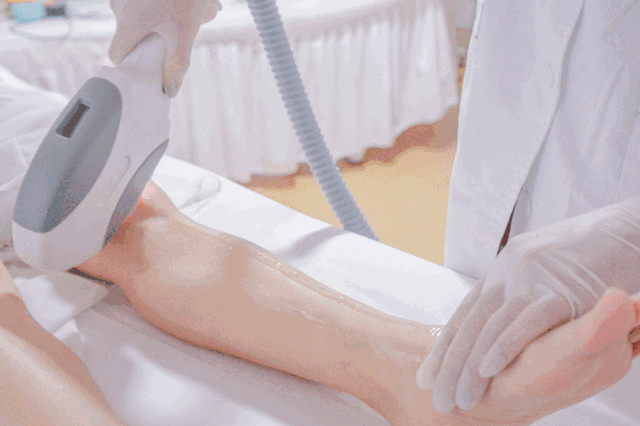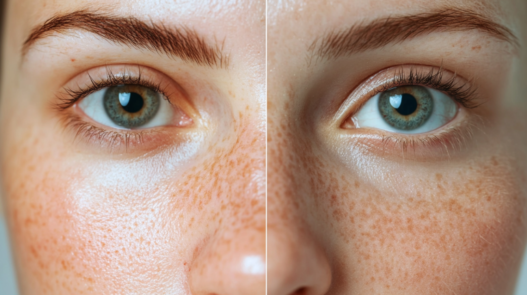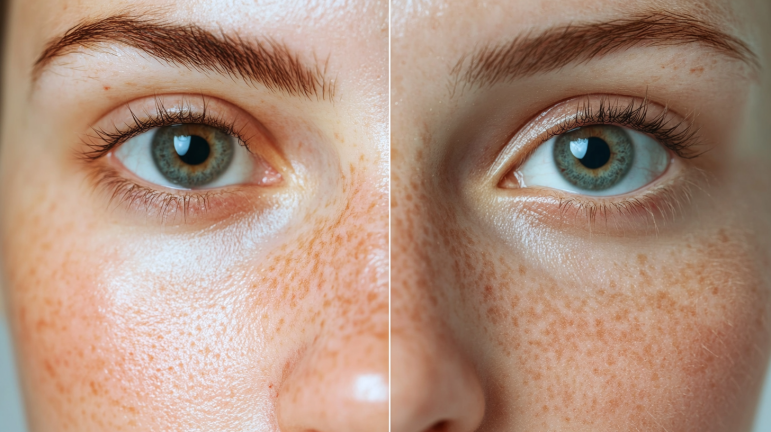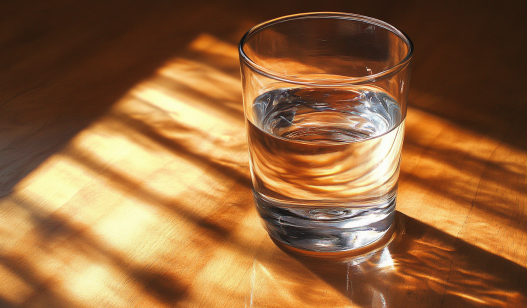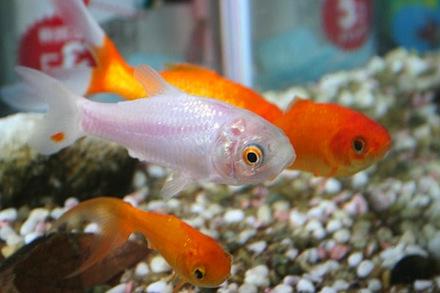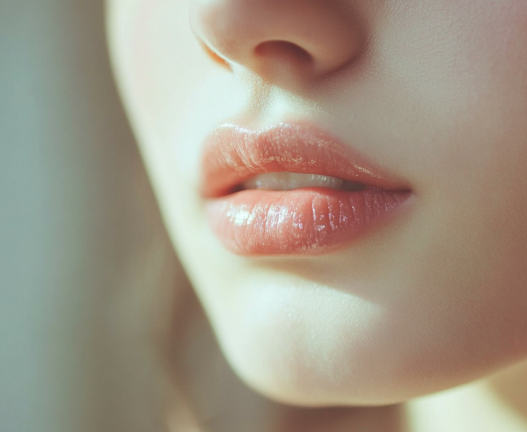Wondering what to do if you have enlarged pores? While this issue might not seem as serious as acne scars or nasolabial folds, if left unchecked, it can significantly impact our appearance. Not only will your skin look rough, but your makeup will also struggle to apply evenly, especially around the nose area. If you want to stop worrying about large pores, let’s dive into the causes and solutions for pore size.
What Are Enlarged Pores?
Enlarged pores are visibly noticeable openings in the skin, typically found on the nose, the sides of the nose, cheeks, and forehead. Although they may not be obvious from a distance, they become very apparent when you get closer, giving an impression of a lack of refinement. Even with foundation, these pores may remain visible, making the skin appear rough.

The 4 Main Causes of Enlarged Pores
1. Oily Skin Type
When the sebaceous glands overproduce oil, the excess oil can clog the pores, causing them to stretch and become larger. Typically, men experience more noticeable pores because they tend to produce more oil. Additionally, factors like staying up late and stress can increase oil production, causing pores to expand.
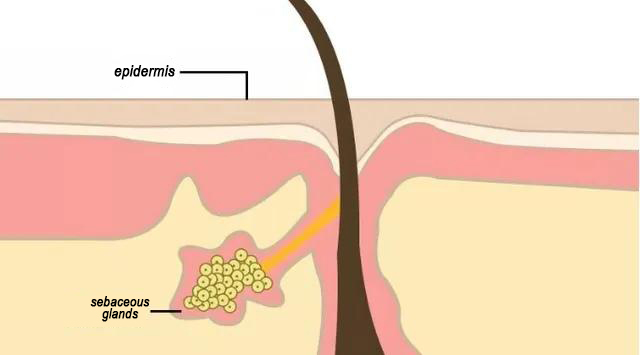
2. Dehydrated Skin Type
People with dry skin may experience enlarged pores due to a lack of oil production. In this case, the pores appear more oval-shaped.
3. Aging and UV Exposure
As we age or expose ourselves to UV radiation, the skin loses elasticity, and pores can gradually become more visible. This type of pore is often more droplet-shaped.
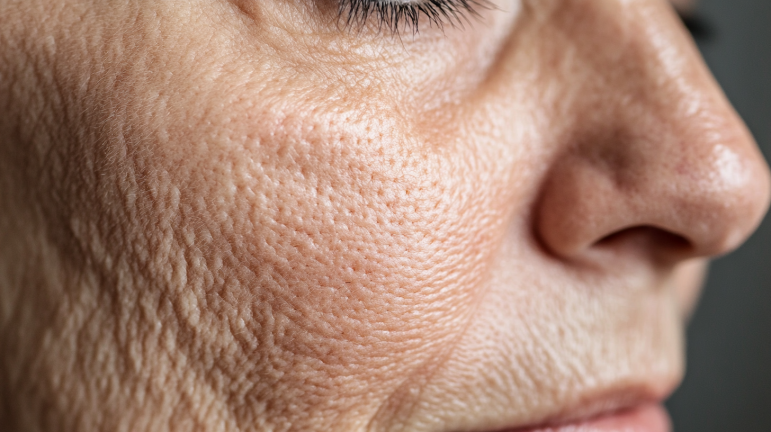
4. Hair Follicle Type
Some people may have smaller pores, but due to an increased number of hair follicles around the nose and cheeks, tiny black hairs may make the pores appear larger. Factors like sun exposure and skin aging can also cause sagging, leading to pore enlargement.
Common Pore Shrinking Myths
Many people struggle with enlarged pores and have tried various internet remedies to shrink them, but often these methods not only fail but can also cause sensitive skin! Here are some common pore-shrinking myths that many people believe:
1. Ice Compresses or Hot and Cold Water Face Wash
These methods are based on the principle of “thermal expansion and contraction” to shrink pores. While they may seem logical, in reality, they don’t work! Extreme cold or alternating hot and cold temperatures can irritate the skin, causing increased sensitivity, redness, or broken capillaries.
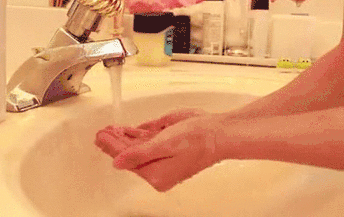
2. Washing Face with Lemon Juice
Some people claim that adding a few drops of lemon juice to your face wash will shrink pores, reduce acne, and brighten the skin. While lemon juice contains acids that can dissolve oil and unclog pores, raw lemon juice is highly acidic and can irritate the skin, leading to allergic reactions or skin damage if applied directly.
3. Sugar Scrubs
Some believe that massaging the face with sugar can remove excess dead skin cells and blackheads, making the skin smoother. However, sugar crystals are too coarse and uneven, unlike facial scrubs designed specifically for delicate skin. Rubbing sugar on the face can scratch the skin, damaging the skin barrier, and increasing sensitivity and redness.
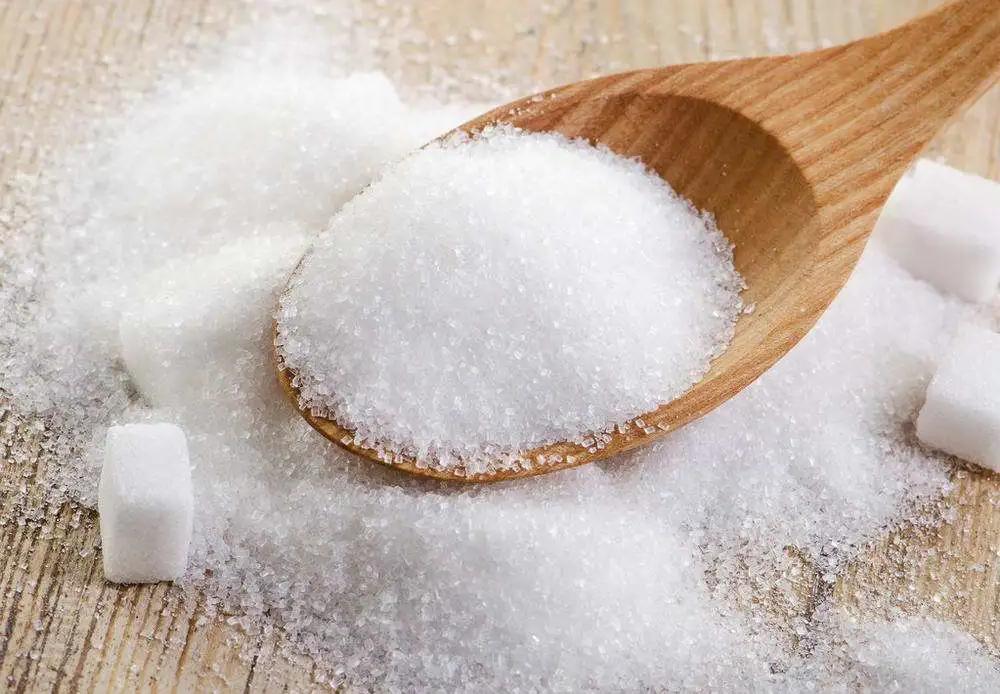
Effective Pore Shrinking Methods
1. Oil Control + Pore Unclogging (Suitable for Oily Skin Type)
When choosing skincare products, opt for those containing retinol or niacinamide, which can effectively control oil production. Additionally, salicylic acid and glycolic acid products are essential for dissolving oil and unclogging pores, preventing them from becoming larger. For people with extremely oily skin who feel greasy shortly after washing their face, consider seeking medical treatment, such as using retinoids. However, retinoids can be highly irritating and may cause dryness or peeling, so they should only be used under the supervision of a dermatologist. Botox injections in the dermis can also be an option to suppress sebaceous gland activity and prevent pore expansion.
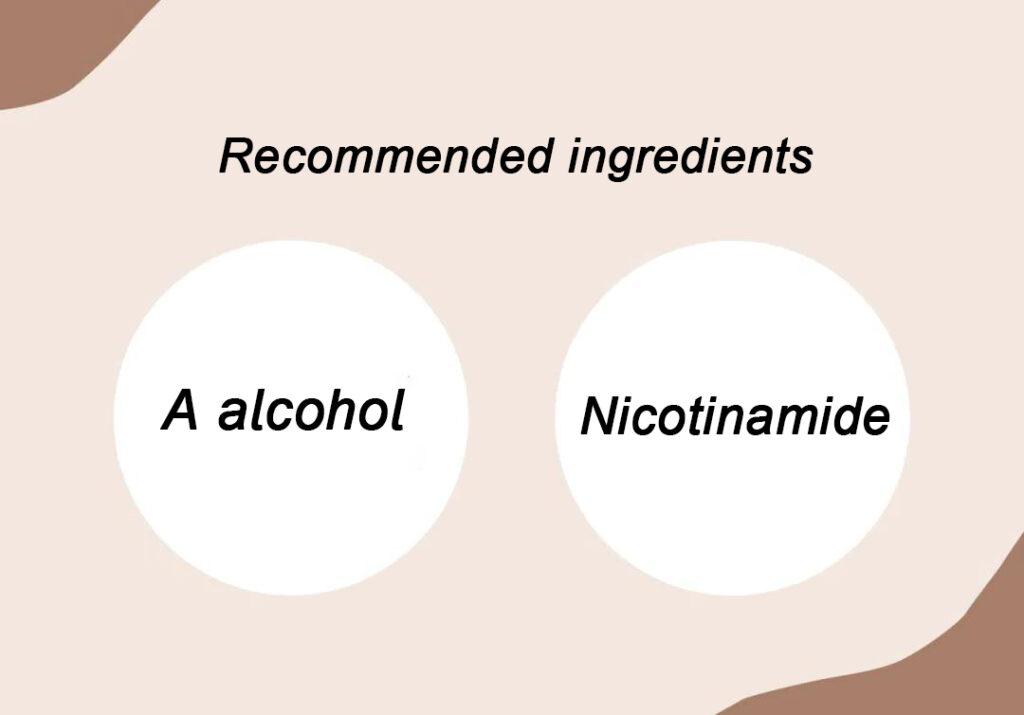
2. Timely Hydration and Moisturizing (Suitable for Dehydrated Skin Type)
For pores caused by dry skin, hydration is key! Use products with hydrating ingredients like hyaluronic acid, panthenol, vitamin B5, and ceramides to keep your skin moisturized and prevent pores from appearing enlarged. During the dry fall and winter seasons, apply a thicker cream after your serum to lock in moisture. You can also apply hydrating masks 1-2 times a week for extra moisture.
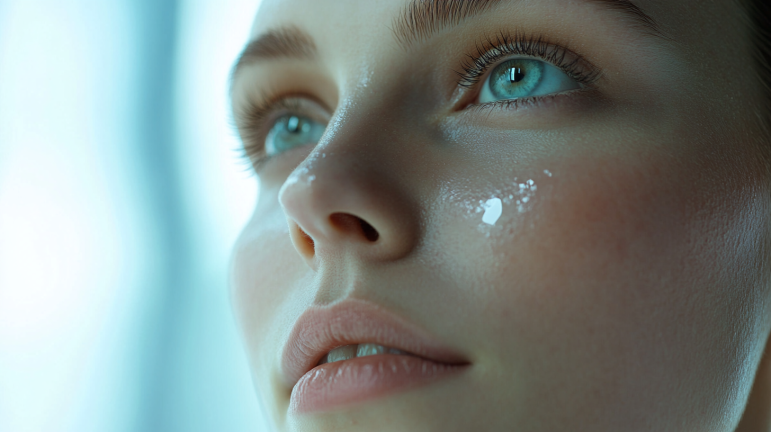
3. Sun Protection + Stimulating Collagen Production (Suitable for Aging Skin Type)
Prevention is essential for aging pores, so always apply sunscreen when heading outdoors (even on cloudy days). Sunscreen can protect against UV-induced photoaging. You can also incorporate anti-aging serums containing retinol or peptides into your routine. If your pores are already significantly enlarged, relying on skincare products alone may not suffice, so consider combining medical treatments, such as:
Photorejuvenation (IPL): Can address various skin issues, including enlarged pores, light acne scars, pigmentation, fine lines, and redness. It’s a popular treatment in medical aesthetics with minimal downtime.
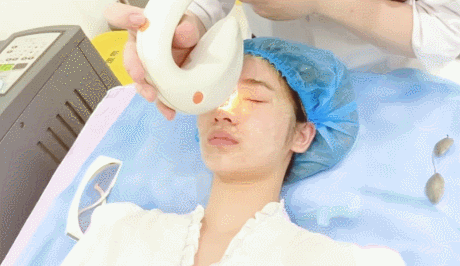
Microneedling with Radiofrequency: Creates tiny punctures in the skin to stimulate healing and collagen production, improving enlarged pores and skin texture. Recovery may last around two weeks, and it’s more expensive.
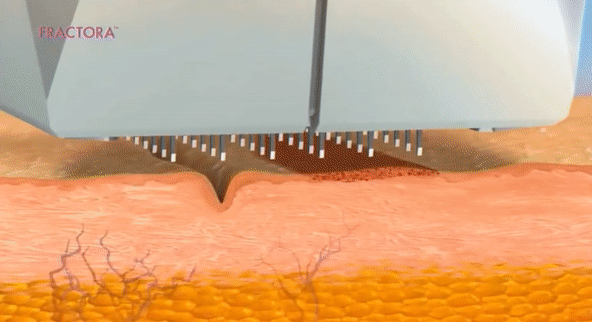
Fractional Laser: Uses heat to stimulate collagen regeneration. It’s highly effective for treating severe enlarged pores but requires a longer recovery time.
4. Hair Removal (Suitable for Follicular Type Pores)
For follicular type pores, the most effective method is laser hair removal. By targeting hair follicles, this treatment reduces hair growth and minimizes the appearance of pores. For a more comfortable alternative, ice-point hair removal offers a cooling system with lower energy levels.
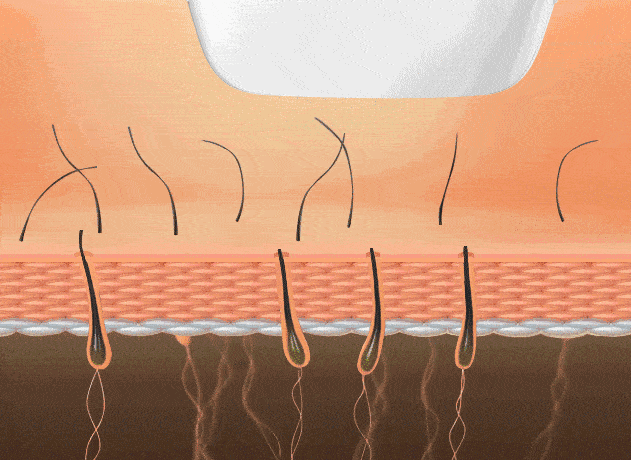
By understanding the cause of your enlarged pores and choosing the right treatment, you can achieve smoother, healthier-looking skin!
